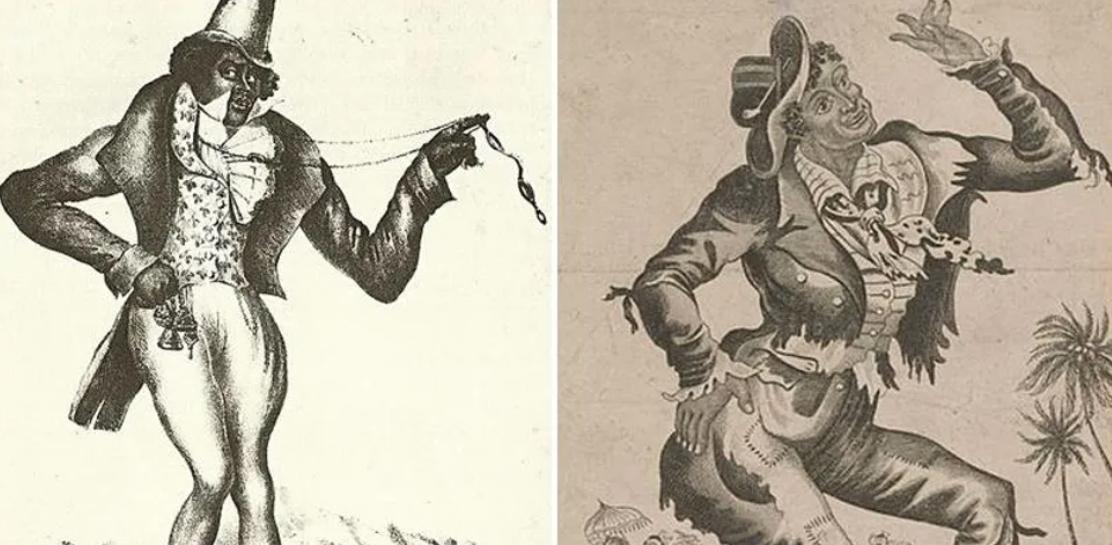
Sorry to ruin your summer, but the 'ice cream truck' song is racist AF
By Tod PerryJune 30 2020, Updated 11:39 a.m. ET
WARNING/EDITOR'S NOTE: This article contains subject matter and some language (though censored) that may be triggering for readers. However, in our attempt to highlight passive examples of systemic racism we felt it was a story worth sharing.
There are certain sounds that are synonymous with summer, the crack of a baseball bat, the sounds of someone cannon-balling into a pool and the tinny sound of the ice cream truck rolling down the street, accompanied by the scampering sound of children's feet.
The song played by the ice cream truck in most people's neighborhoods sounds something like this:
The tune is "timeless," but most people don't know that the words to the most popular version of the song are incredibly racist.
The original version of the melody comes from the traditional British song "The (Old) Rose Tree" which made its way to the American colonies by Scottish and Irish immigrants in the 1700s where it was popularized as the song, "Turkey in the Straw."
In the late 1820s, the melody took a turn for the disturbingly racist when multiple songs were written about "Zip Coon," a popular minstrel character. Although it's unclear who originally wrote the lyrics, there were versions published by Thomas Birch in 1834 and George Washington Dixon in 1835.
O ole Zip Coon he is a larned skoler,
Sings posum up a gum tree an conny in a holler.
Posum up a gum tree, coonny on a stump,
Den over dubble trubble, Zip coon will jump
The chorus of "O Zip a duden duden duden zip a duden day" would later become the inspiration for Disney's "Zip-A-Dee-Doo-Dah."
Zip Coon was a stock minstrel show character who was a way to mock free Black men. He was an arrogant, ostentatious man who wore flashy clothes and attempted to speak like affluent white members of society, usually to his own disparagement.
He was often paired with Jim Crow, a dimwitted rural character. The actors who played both roles were white and wore blackface.

In the early 1900s, coon cards which were essentially playing cards with racist depictions of Black people eating watermelons while making wide-eyed looks, were popular and inspired another racist version of the popular melody: "Ni**er Love a Watermelon Ha! Ha! Ha!"
The song opens with someone telling a group of Black people to stop playing dominoes and to come get some ice cream. The racist twist is that it's "the colored man's ice cream: Watermelon!"
The hook has to be one of the most racist things every written:
Ni**er love a watermelon ha ha, ha ha!
Ni**er love a watermelon ha ha, ha ha!
For here, they're made with a half a pound of co'l
There's nothing like a watermelon for a hungry coon
The song would become popular in ice cream parlors of the early 1900s that often played minstrel songs. After World War II, when many people moved out the cities and into the suburbs, ice cream parlors sent trucks out to these new neighborhoods to expand their business to the 'burbs.
To keep the old-timey feel of the parlor and to alert the children to the truck's presence, they would commonly play the melody associated with the two extremely racist songs.
Hundreds of years after the melody first was written somewhere in England, American children now associate the song with one of the purest joys life has to offer, the cool taste of ice cream on a hot summer's day.
But after learning the melody's historic association with pain and oppression, can we ever hear the song the same way? Should we be happy that a timeless melody has been redeemed after decades of being associated with something positive? Or should it be banished it from being broadcast on our streets and replaced by something that better describes the joys of summer?
